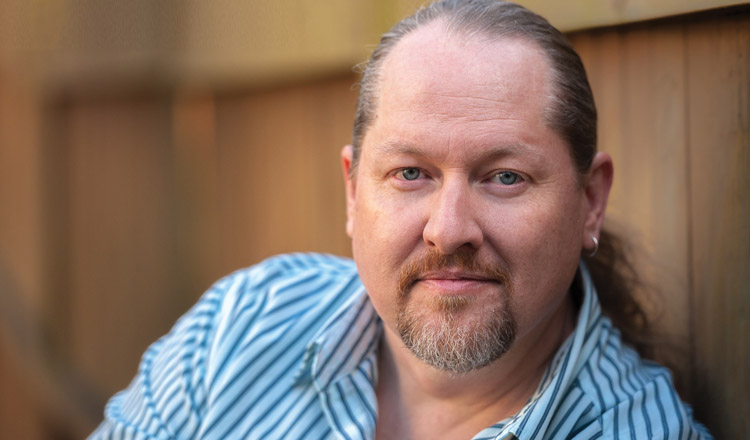When whistleblower Edward Snowden became a household name in the early 2010s, Carey Parker’s (ECE’91, MS ECE’92) career as a security and privacy advocate took shape. “I wanted to bridge the gap between the physical world and the cyber world,” he says. “In our physical daily lives, we have locks, smoke alarms, and seat belts — but we have not developed those same cyber instincts.”
When Snowden emerged, Parker was driven to pursue one of his bucket-list goals of writing a book. He wanted to help people learn about and address mass surveillance issues. Author Alan Forbes had written a series of coding books, so Parker reached out to him for advice. “He had a Kickstarter campaign for his next book,” Parker says. “I asked for tips — he became my mentor and taught me to self-publish.”
It took roughly a year for Parker to go through the framework and research stages and pull final materials together. The book, Firewalls Don’t Stop Dragons, is now in its third edition. “I felt compelled to help people understand why computer security and online privacy are important — not just individually, but for any healthy democracy — and tell them what they can do to improve both,” Parker says. “The book has well over 150 tips and techniques for mitigating or eliminating cyber weaknesses, online tracking, mass surveillance, and general hackery.”
I felt compelled to help people understand why computer security and online privacy are important — not just individually, but for any healthy democracy — and tell them what they can do to improve both.
In addition to the book, Parker runs a blog and weekly podcast of the same name. He publishes timely tips on his website and features cybersecurity news and knowledgeable guests on the podcast. “I am on a mission to raise the awareness of everyday, nontechnical people on the crucially important topics of cybersecurity and online privacy,” he says. “There are plenty of resources for computer geeks like me, but I’m striving to reach the 99 percent of the population who use the internet all the time but have no real idea how safe they are nor how to make themselves safer.”
Parker also teaches cybersecurity and privacy continuing-education classes at Duke University through the Osher Lifelong Learning Institute. “I really enjoy it,” Parker says. “Even though most of the students have advanced degrees, many of them have no real experience with cybersecurity. They tend to be more cautious when it comes to security issues than my kids.”
Considering millions of workers have switched from their typical office environments to home offices during the COVID-19 pandemic, folks who were formerly logged into corporate networks are now using virtual private networks and conducting meetings through various avenues online. “There are a lot of growing pains,” Parker says. “People are trying to figure out how to use these tools safely and securely.”
Privacy and security risks keep multiplying in other ways. Domain names including either COVID or coronavirus have seen a huge spike, causing unsuspecting internet users to click on malware sites. Email scams are also on the rise, with people being prompted to supply their passwords under false pretenses.
Parker stresses three vital steps to help ensure privacy and security: back up everything; use a password manager to both generate strong passwords and store your passwords; and use two-factor authentication when you can. Parker says those are strictly security steps — for enhanced privacy, there is no silver bullet. He suggests using the Firefox browser with privacy plug-ins.
Knowing that many people do not necessarily care how their computers or mobile devices work, Parker endeavors to offer step-by-step security tips without jargon or overly technical explanations. “It’s like eating right and exercising,” he says. “Sure, it’s good to know why it will help you, but you can get all the benefits just by doing it, whether you understand it or not. And there are dozens of free and simple things we can all be doing to protect ourselves, our family, and our friends.”

